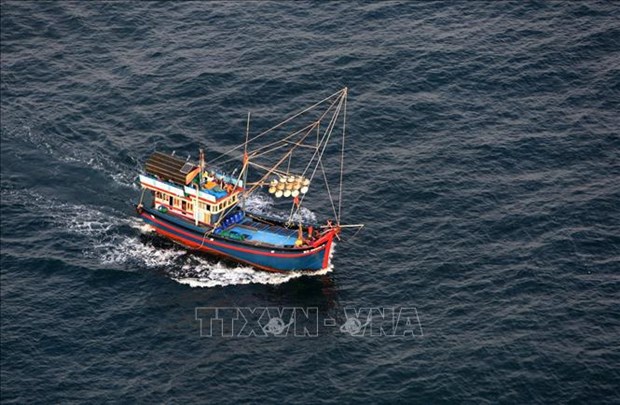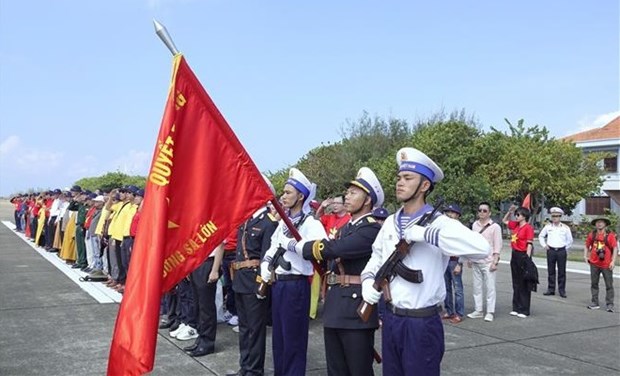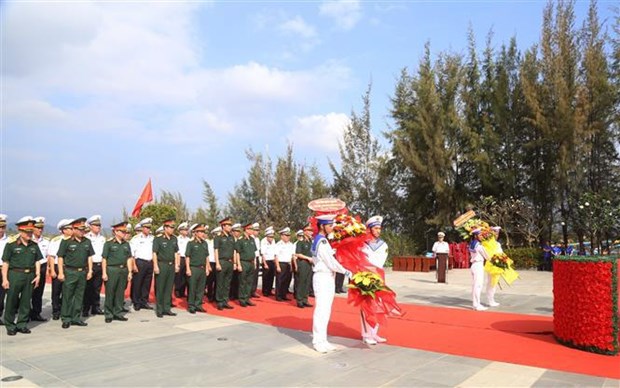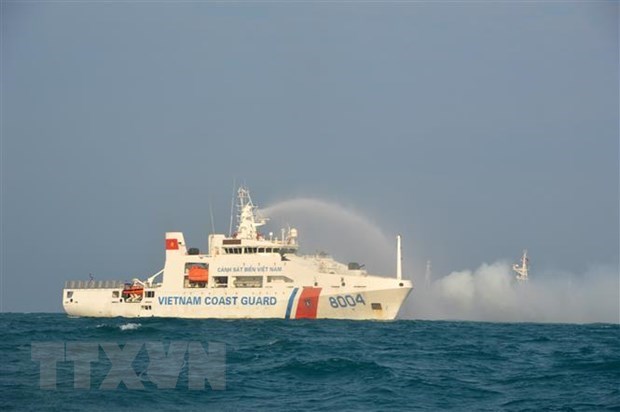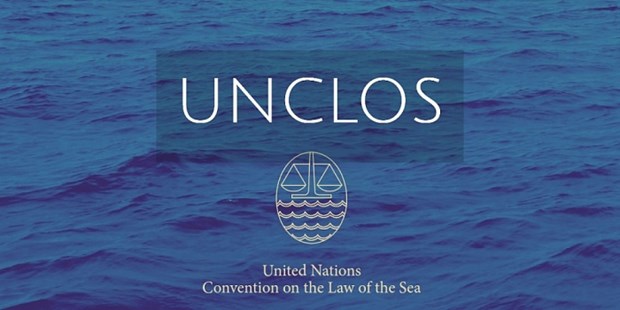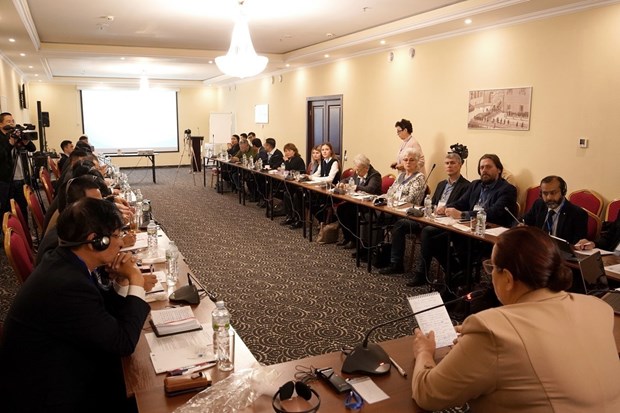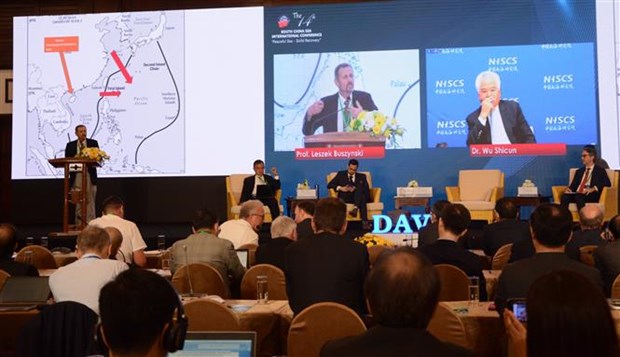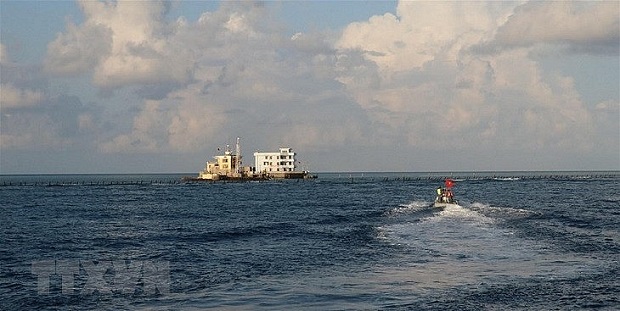 |
| Da Thi Island, Truong Sa archipelago, Vietnam. Photo: VNA |
Guideline for agreements
Since 1977, Vietnam has joined the Third United Nations Conference on the Law of the Sea, when countries are arguing about the method of maritime delimitation, Vietnam is in the supporting group to apply the principle of equity.
Vietnam has supported the principle of equity, requiring respect for the natural rights of each country for the waters and continental shelf, in accordance with the current international law.
With the development of the law of the sea, on May 12, 1977, the Government of Vietnam issued a statement on the principle of determining Vietnam's maritime area, in accordance with the Convention. This is one of the earliest declarations under the Convention in Southeast Asia.
Vietnam's statement on May 12, 1977, on territorial waters, contiguous areas, exclusive economic zones, and continental shelf of Vietnam publicly stated the country's viewpoint of settlement of sea disputes.
That is resolving issues related to sea areas and continental shelves of each party through negotiation, on the basis of respecting each other's independence and sovereignty, in accordance with international law and practices.
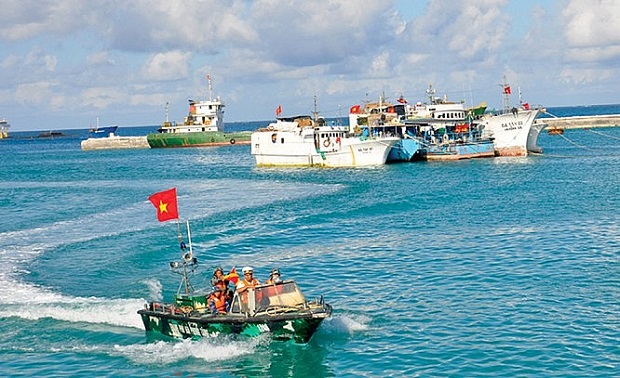 |
| National flag on patrol boats at Da Tay A Island. Photo: Baoquangngai |
Ambassador Nguyen Hong Thao, a member of the International Law Commission of the United Nations for the term 2017-2021 and 2023-2027 indicates that Vietnam's viewpoint in resolving sea disputes is through direct and goodwill negotiation.
It is based on respect for the legitimate rights and interests of countries to reach an agreement on a fair and reasonable solution that they can accept.
Vietnam's viewpoint and stance in resolving disputes at sea are through negotiations to reach agreements on the basis of law and international practice of UNCLOS 1982, applying the principle of equity, to achieve a just solution.
"This view is completely correct, reasonable, in accordance with the trend and common customs in the region, the law, and international practice," Ambassador Nguyen Hong Thao said.
Fairness is what countries are aiming for
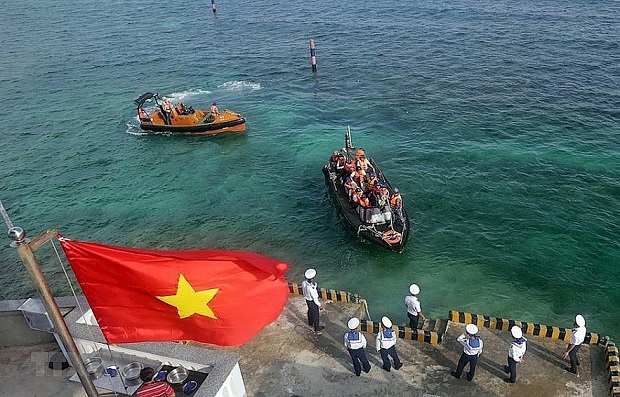 |
| Photo: VNA |
Prof. Nguyen Thi Hong Van, University of Social Sciences and Humanities, Vietnam National University Ho Chi Minh City said that the current international law of the sea has succeeded in establishing a legal order for the waters, ocean, contributing to the formation of fair principles in maritime delimitation between countries.
In particular, negotiation is the supreme solution for the principle of maritime delimitation, but fairness is the result that the parties are aiming for. Therefore, the delimitation must always be implemented according to the fair method to ensure benefits for the countries.
The development process of the international law of the sea shows that maritime delimitation is a complex issue. Therefore, negotiation has always been appreciated. When the parties do not reach an agreement, the dispute must still be resolved on the principle of equity.
UNCLOS 1982 emphasized that the development in the direction of the sea law prescribed in the Convention will contribute to strengthening peace, security, cooperation, and friendship between all peoples in accordance with the principles of equity.
In maritime delimitation, fairness is the division on the basis of reviewing, and adjusting the rules and principles of equity, suitable for relevant circumstances and ensuring the interests of countries.
Vietnam's stance in settling disputes at sea, including maritime delimitation, is institutionalized in Vietnam's legal documents and consistently expressed through the international treaties that Vietnam has signed with relevant countries.
Vietnam has expressed its determination to join the international community in building a fair legal order at sea, enhancing development and cooperation at sea.
Long Phạm / Vietnamtimes

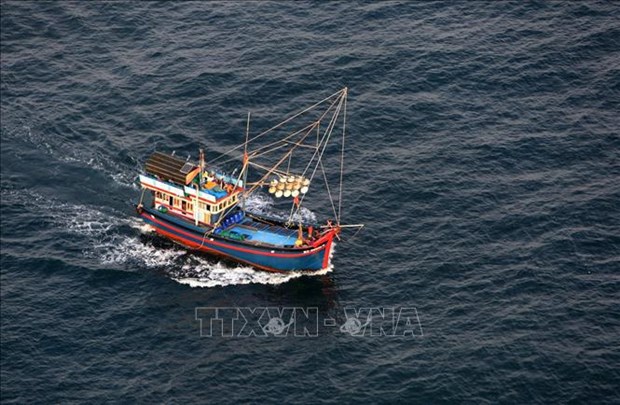
.jpg)
